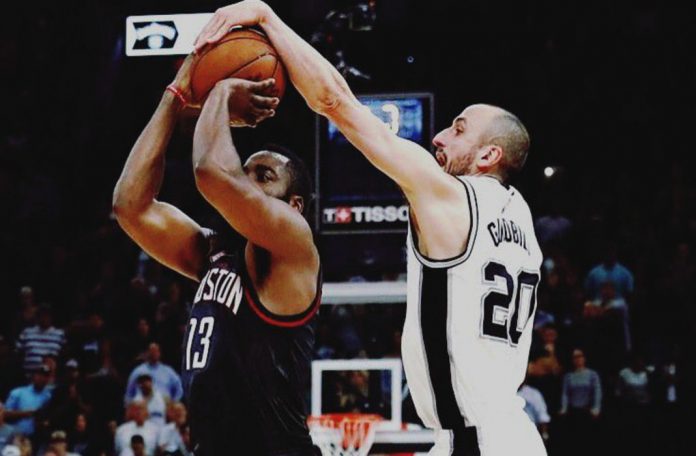As an Argentinean, I can’t begin to explain what Manu Ginobili means to me. He was the main reason I got into basketball and started watching the NBA. Manu was the heart and soul of the team that took the Olympic Gold medal away from the United States back in 2004. He was the best overall athlete this country had to offer for nearly a decade (sorry Lio Messi). I personally think Manu will be a first ballot HOF when his time comes, three years from now.
Humble beginnings
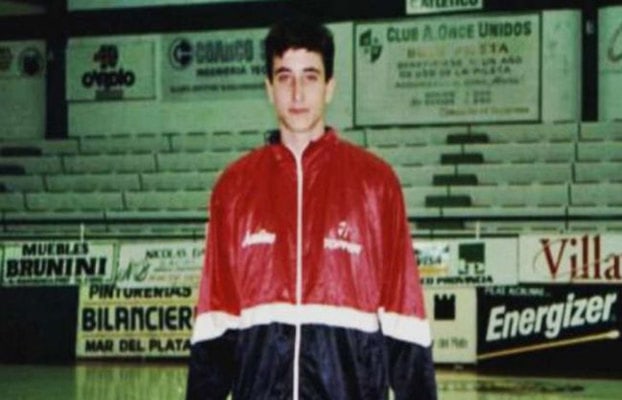
Manu started playing basketball as a shooting guard in the province of La Rioja, Argentina, for Club Andino. In 1995, he made his debut in the Liga Nacional. As a skinny guy, Ginobili didn’t look the part of a basketball player. Even the commentator of the game was on record saying “I don’t know if Manu is ready for La Liga.” In his debut, Ginobili scored nine points in a 104-85 defeat against Peñarol de Mar del Plata.
Ginobili didn’t impress the coaches in his first season. As an 18-year-old, he didn’t have the physicality that guys like LeBron (when he was in HS) or Zion Williamson have. He was just a tall, skinny guy that had a decent shot. In an interview this past week, his former coach said “He was nothing out of the ordinary, just another rookie in the League” but also mentioned Manu’s impeccable work ethic. “He is a perfectionist, he was improving every day” he stated.
Then, in 1996, he went back to his hometown of Bahia Blanca to play for Club Estudiantes. That season he earned the La Liga equivalent to Most Improved Player and was named MVP of the Promises Game. The rise of Manu was on track.
European Adventures
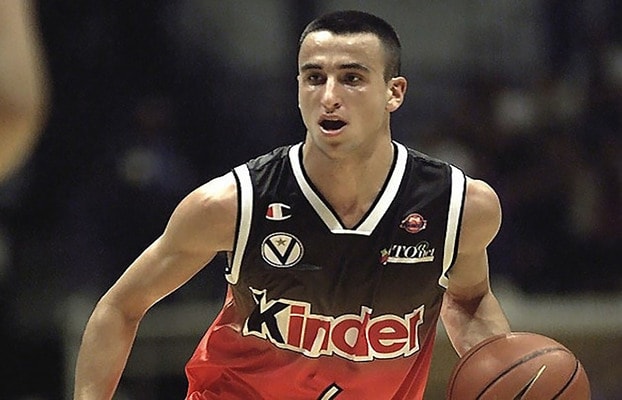
After just two years playing in Argentina, Manu headed to Europe, where he’d play on Reggio Calabria, of Italy. After averaging 17.0 PPG to go along with an astounding 3.2 SPG, and also being named an All-Star, Manu was selected with the 57th pick of the 1999 NBA Draft. Instead of heading to the States, Manu wisely decided to stay in Europe, playing for Kinder Bolonia, to further improve his game.
In his second season, at 23, Manu posted very similar stats to his first season. Despite a small dip in PPG, assists, and steals, Manu improved his FG% and rebounding. He was named an All-Star and won the MIP Award both for the second year in a row. Rumors about finally making the move to the NBA grew, but Ginobili once again chose to stay in Italy.
During his third and final season, Manu established himself as a star on the old continent. He averaged career highs in every major category, and as a result, he was chosen as, MIP and named an All-Star for the third time in a row. Not only that, but Manu also won MVP of the Italian League and the EuroLeague Finals
(Fun Fact: In the Finals, Manu went up against Fabricio Oberto and Luis Scola, two fellow Argentine players and two key components of the Golden Generation).
Manu won the EuroLeague, the Italian League, and the Italian Cup (twice). His winning instinct was starting to grow.
Making The Leap
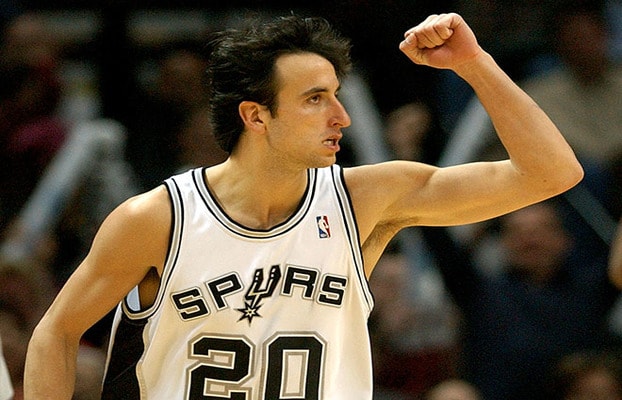
After the 2002 FIBA World Championship (more on that later), Manu finally headed to the United States to play in the NBA, at age 25. On October 29, Ginobili made his NBA debut against the Lakers. He scored seven points on 3/9 shooting and also recorded four steals. He made a late debut due to an injured ankle suffered in the FIBA semifinals, so he wasn’t at 100% until nearly midseason. After recovering, Manu started to really shine and earned Rookie of the Month in March. He ended his rookie season averaging 7.6 PPG, 2 RPG, 2 APG and 1.4 SPG.
In his first season, Manu also won his first NBA championship, on a team that featured HOF David Robinson, Tony Parker, Tim Duncan, and Stephen Jackson. After the win, Manu was given the Olimpia de Oro, an award given to the best Argentinean athlete.
As dedicating a paragraph to all 16 of Manu’s seasons in the NBA would make for an absurdly long article, I’ll highlight his best and most impactful moments in his long career.
One of Ginobili’s best seasons came in his third year in the league, the 2004-2005 NBA season. Manu played and started 74 games and averaged a 16/4/3 line with 1.6 steals per game. He was once again (as in his entire career) effective shooting the ball, both in the paint and from three-point range. Manu was named an NBA All-Star for the first time in his NBA career. Against the Suns, Manu scored a career high 48 points in a game. For the playoffs, Ginobili averaged 16 PPG, and along with Duncan and Parker, led the Spurs to their third NBA ring (Manu’s second), after defeating the Pistons in an epic showdown. Manu would go on to win his second Olimpia de Oro award, shared with Carlos Tevez (who now is not enjoying his old age).
Gregg Popovich, in 2006-2007, decided to move Manu to the sixth man. Ginobili improved in nearly every category and seemed to thrive in his new role. Manu was always a true team player, willing to sacrifice minutes or starts in order for the team’s best interests (take note Melo). In his sixth season in the league, Ginobili won his third NBA ring against the LeBron James’ Cavs. The dynasty was achieved. The Popovich led Spurs, featuring Manu, Tim, and Tony cemented themselves as one of the greatest teams of the 2000’s.
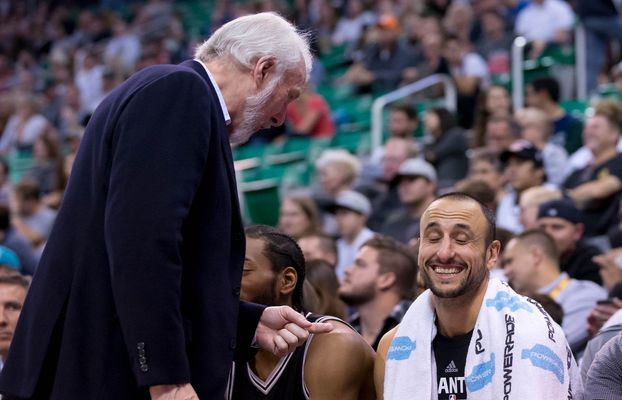
The following season was arguably Manu’s best. He averaged a career-high 19.5 PPG and won Sixth Man of the Year and was named All-NBA Third Team. He shot above 40% from deep for the first time in his career and also averaged nearly five rebounds and five assists per game. That year the Spurs beat the Suns and the Hornets (led by Chris Paul) in the playoffs before being destroyed by the Kobe led Lakers in the Conference Finals. Manu averaged 17.8 PPG in the playoffs.
2010-2011. Back in the starting lineup (started 79 games), Ginobili averaged 17.4 PPG along with 4.9 APG. Manu finished eighth in MVP voting and was named an All-Star for the second and final time in his career. He was also named All-NBA Third Team again. Ginobili suffered an injury in the final game of the regular season, but he played through it in the playoffs. Despite his heroic efforts, the Spurs fell in the First Round against the Grizzlies.
Let’s take it to the 2013 and 2014 NBA Finals, both against the Miami Heat. The 2013 series has to be one of the worst memories for Manu and the Spurs. Up 3-2 in the series, the Spurs led by three with 10 seconds remaining. As every NBA fan remembers, “Rebound Bosh, back out to Allen, his three-pointer… BANG!” The game went to OT, where the Heat won, and Miami eventually went on to win Game 7. The Spurs were a rebound away from winning their fourth NBA Title.
The next year, the stage for revenge was set. Once again, the Spurs and the Heat were pitted against each other. This time, the Spurs left no doubt as they beat the Heat 4-1 and were crowned champs again. Manu averaged 14 PPG and received his fourth NBA ring. The Spurs dynasty was now cemented as one of the greatest of all sports history.
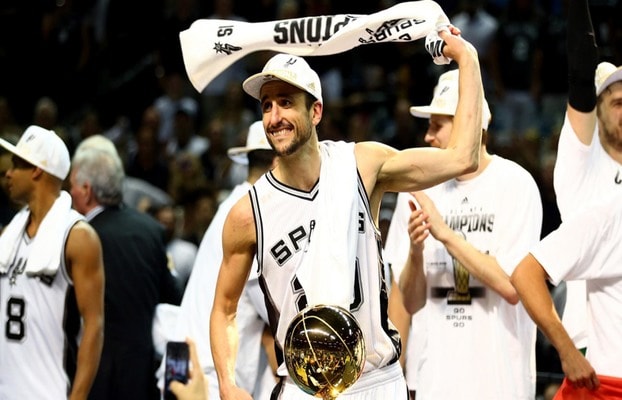
From the onset of his career, there are two moments that will forever be engrained in my memory. The first one is his famous block on James Har_en in the final possession of a game in the playoffs. The block that gave birth to the Block James Harden Day.
The second moment that I remember fondly is when every Warriors player waited to salute him after a game last season (what would eventually be Manu’s final game). It just goes to show the respect Manu earned from his peers, not only because of his game but also because he was always a class act.
International Exploits
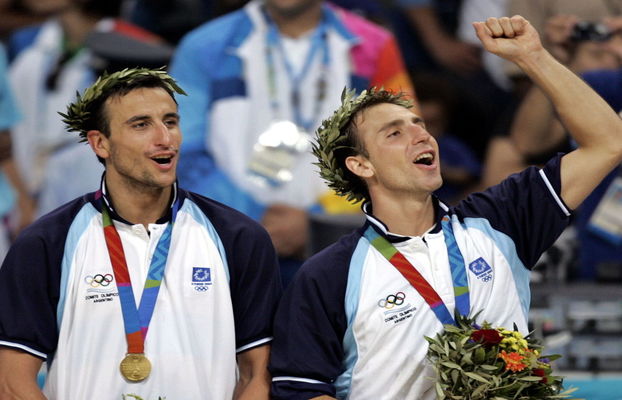
Although it’s often overlooked, Manu left an equally impressive mark on his career with the Argentina national team. Manu was the leader of the Generacion Dorada of Argentine basket. A generation that featured players such as Luis Scola, Fabricio Oberto, and Andres Nocioni among others. This team of players came in second in the 2002 FIBA Championship mainly due to some questionable calls in the final, but their biggest accomplishment was the gold in the 2004 Athens Summer Olympics.
To put it in perspective, of the last seven Olympics, the US won the gold medal in six of them. The only one where they failed was 2004. Argentina defeated the US in the semifinals 89-81, with 29 of those coming from Manu, before going on to beat Italy in the final 84-69. Ginobili was named MVP of the tournament.
Manu finished his national career with a gold (2004) and a bronze (2012) medal in the Olympics, a silver (2002) in the FIBA National Championship, and two golds (2001 and 2011), a silver (2003), and a bronze (1999) in the FIBA Americas Championship.
What the future holds
Many casual NBA fans may look at Manu’s individual stats (Two All-Star selections, A Sixth Man of the Year, career 13.3 PPG average) and say that there’s no way he makes it to the Hall of Fame. If you look into Manu’s overall impact in the game, however, he should be in the Naismith Memorial three years from now.
First of all, Manu basically invented the Euro-step, and his story on one of the greatest dynasties in modern NBA history can’t be denied. Simply put, Emanuel David Ginobili deserves to be in the Hall of Fame.
Gracias, Manu. Thank you for being the amazing person and athlete that you were for so long. Thank you for introducing me to such an amazing sport, and thank you for representing our country so well. We’ll miss you.
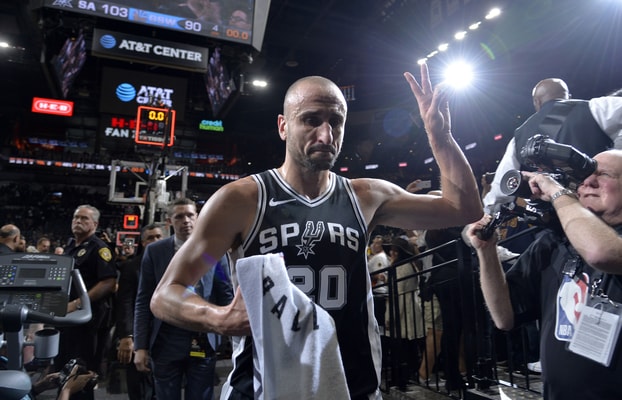
Twitter: @casiopersource

